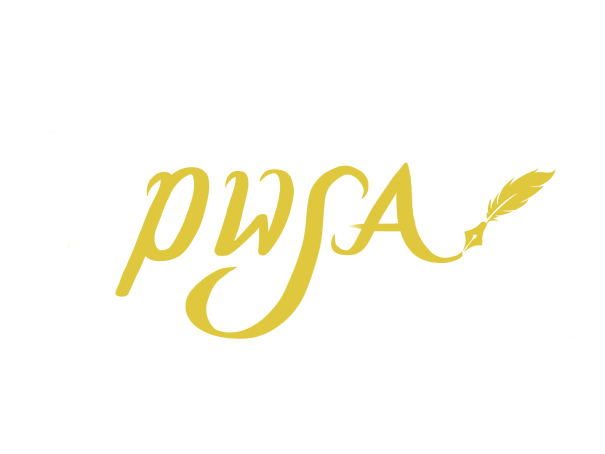Guide Your Hunger: How Fasting Helps You Reclaim The Reigns
It’s 2:24 AM, the night before Eid. My mom’s in the kitchen working her magic, with seven different dishes in the making, and too many ingredients strewn about for me to count―not that I counted how many dishes she was making, either. Seven seemed as good a number as any for a modestly exaggerated guesstimate. My brother’s watching something on his phone, in his room, and my sister’s door is locked, like usual, and her lights are on, like usual, and my dad’s asleep. And I just stumbled out of my brother’s bed after a solid three hours of doom-scrolling, visited my mother in her kitchen, took mental notes along the way and planned out this paragraph, and am now sitting in the comfort and quietude of my room, writing the paragraph I set out to write some thirty-three or so odd minutes ago. Again, just a guesstimate. It’s 2:43 AM now, in case you were wondering.
As I was saying, it’s the night before Eid (or the night of Eid, whichever makes more sense to you), and I fasted every day of the month of Ramadan, as I’ve been doing for the past ten or so years since I reached the age of puberty. I’ve gotten pretty used to fasting now, but while I fasted the whole month, I largely missed the mark entirely for why I was fasting. It’s a sad truth, but religious acts of worship often turn into mindless routines if you don’t perform them with care and intent. And that’s what’s happened with fasting, for me. We fast in Ramadan for many reasons, but the most pertinent reason for me is that fasting is an exercise in exercising your will and practicing conscious, controlled consumption and action. Boy, what a mouthful that was! Let’s break that down a bit.
(It’s 5:04 AM, three days since writing the last sentence you read, and I’ve just awoken from another one of my false escapades into social media after four and a half hours. And I say “false escapades” because it’s really an entrapment of my soul and a hijacking of my mind by the algorithms that feed me micro-dopamine appetizers that promise me fulfillment but will never fill me in any meaningful way and will instead leave me bleary-eyed with a dull headache and a copious amount of self-contempt. Now then, with that out of my system,
let’s get back on track.)
Once you eat food, it gets broken down in your stomach and then in your small intestines where the nutrients are also taken up into your cells and then are sent all over your body. And it usually takes a few hours for that to happen, depending on the macro-nutrient makeup of the meal. After a lot of amazing chemical processes, you start to feel hungry again, and the intensity of the hunger usually increases the longer you stay in a fasted state. In my experience, I usually get pretty hangry after a while, and then my sole focus is on relieving myself by indulging in whatever food I can easily get my hands on. My hunger becomes the main driver of my actions, and not my reasoning mind. So I may end up eating something I know will cause my eczema to flare up later, or eat so much in a short amount of time that I then feel unwell. My hunger, in that case, owns me and my actions, and I do not own my hunger and my actions. When fasting, you force yourself to not give in to your thirst and hunger until the sun sets, and in the process, you start to gain mastery and control over your bodily feelings, sensations, drives, appetites. And you do this every day for a whole month. Ramadan, by way of fasting, helps facilitate the cultivation of your will and helps you own your hunger so that you then consume consciously with purpose and intent. But why should we care if we own our hunger or if our hunger owns us?
All this I’ve said about learning how to consume consciously is not just about watching what, when, and how much you eat. That’s just the most literal and superficial level. The real goal of fasting is to help you train and develop an awareness of your physical, psychological, emotional, and spiritual needs and cravings, and then fulfill them in a way where you are actively choosing and acting as an agent and not being a passive participant getting pulled every which way by your needs and wants. In my case, I had come to a point where I could own my hunger quite easily for the duration of the fast, but once I broke the fast, all my control and restraint fizzled away. And of course, this fizzling away of restraint and control was not limited to the act of eating; I had little control of what I consumed digitally. I had deleted the Instagram app from my phone before Ramadan, but that was quickly replaced with other apps. Oddly enough, this lack of restraint in fulfilling my many needs and wants even spilled into my creative passions. I would spend hours at night writing, editing, and formatting poetry and playing with line art instead of getting sleep which my body and mind so desperately needed. My “hunger” owned me more than I owned it. And I use quotation marks around “hunger” because it encompasses everything from my need for connection with friends to my need for artistic expression to my need for entertainment to my need for stimulation. Instead of doom-scrolling on Instagram or YouTube for several hours straight at night, I could have read Unflattening by Nick Sousanis. I’d read a snippet of it in one of my classes and have been wanting to read more. But to do that, I would need to own my “hunger” for entertainment and stimulation and consciously choose to consume and read a graphic novel instead of not-even-half-heartedly swiping through eighty-seven Reels (another guesstimate) via short, vertical flicks of my pollex (not to be confused with the hallux).
When I do manage to choose what I consume, I find that I have a larger capacity to digest, take in, ponder with, consider, and compare what I consume to things I already know and things I’ve consumed before. For example, I watched a fairly lengthy video (skipped the guesstimating this time) a couple weeks ago where Dr. Gabor Maté was talking about how a child will choose its need for attachment with the parent over its need for authentic expression if forced to choose between the two, and how that can cause disease in adulthood
for that child. Since I chose to consume this video, I paused often to take notes and jot down some of my own reflections. This almost never happens if I simply plop down on my bed and start doom-scrolling. I need to fast with intent and purpose, then, so that I can learn to own my “hunger” and not just perform a ritual for a month and come out of Ramadan an unchanged man, not having made anything of myself, not having owned any part of myself.
But if I think about it a little more, is it even possible to own yourself, or a part of yourself? Is it even possible to own your hunger? I mean, really, who am I to lay claim to a part of myself? What right do I have to aspire to claim sovereignty over my being? After all, I belong to God, Allah, Who created me. So I can’t own myself or my hunger, because all of me belongs to my Creator. Allah has entrusted me with my body, my needs, my nafs[1], my hunger, and made me their custodian, just as He made Adam the custodian of the Earth. So I have no business trying to own what is not for me to own, but I can look after my body, my nafs, and its needs and desires; I can guide my hunger. If I can’t own my hunger, then with fasting, I can certainly guide my hunger and mold it, and in the molding of it, I can make the change in myself that I failed to achieve during Ramadan. Ramadan might be gone for another eleven months (not a guesstimate, just good ol’ counting on the fingers), but I can still fast, and I can still exercise my will and learn to better guide my body, my nafs, my hunger. I may have come out of Ramadan an unchanged man, but I can go into the next Ramadan a changed man, a man who better knows himself, a man who better guides his hunger.
[1]
The Islamic concept of nafs does not have an equivalent word or concept in Western psychology, but it is most closely related to the Id.
Mahmoodulhasan Bhaiyat is in his third year of studying Kinesiology. While his academic studies mostly involve aspects of the body, he loves learning about the parts of people that can’t be observed under a microscope. He also enjoys creating and consuming art, especially Arabic poetry.

